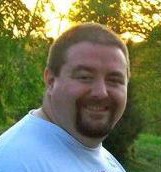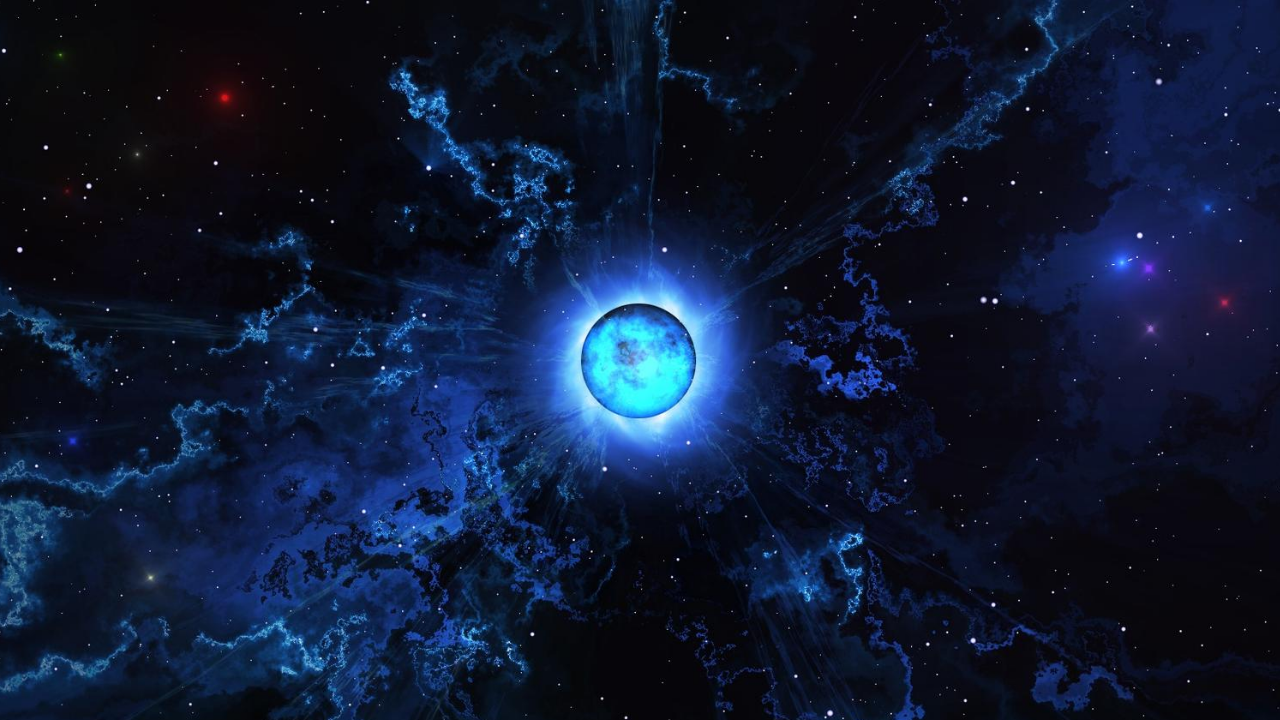By: Brian G. Chilton | July 3, 2022
While reading through Edward Feser’s masterpiece Scholastic Metaphysics: A Contemporary Introduction, I was reintroduced to a divine trait of God that does not always get the most attention—that God exists as pure actuality. To understand what is meant by pure actuality, we must first consider the difference between act and potency. And to understand that, we must investigate the works of Thomas Aquinas, particularly his Summa Theologica. It should be noted that while this article is intended to be written for general audiences, some of the concepts may be philosophically complex and take some time to plow through. But rest assured, once you master the difference between act and potency and God’s existence as pure actuality, you will find that it was time well spent.
Divine Pure Actuality from Act and Potency
The theory of act and potency precedes Aquinas and find root in Aristotelianism. Aristotle taught that being-in-act is the way something actually is, whereas being-in-potency is the way something could be, or “the ways a thing could potentially be.”[1] The two extremes, as Feser notes, are act (something as it exists) and nothingness (the absence of existence). Potency—the potential for something to take shape or behave—is the middle ground between act and nothingness.[2] Therefore, something must exist as being-in-act before anything potential could exist. To give an example, this article is written by me (Brian Chilton). I (Brian Chilton) must exist—that is being-in-act—to give rise to the formulation of this article. Before I wrote the article, the article existed as a potency. The materials were present for me to publish this article (i.e., a laptop, a word document, and a website on which to publish it). Before writing the article, it existed as potency in my mind. But now that I have written it, it exists as act. Nevertheless, the article required the existence of something in act (myself) before the article’s potentiality (in my mind) could be moved to actuality (published on the website).
Taking this to its absolute form, Aquinas explains that something must exist as pure actuality. Pure actuality is something that exists absolutely without any potentiality within itself. The only One who exists as pure actuality is God. Aquinas writes the following:
First, because it was shown above that there is some first being, whom we call God; and that this first being must be pure act, without the admixture of any potentiality, for the reason that, absolutely, potentiality is posterior to act. Now everything which is in any way changed, is in some way in potentiality. Hence it is evident that it is impossible for God to be in any way changeable.[3]
Some theologians may debate Aquinas’s understanding of God’s unchangeability when considering the incarnation of Christ and so on. However, God’s existence as pure actuality is fairly well established by the nature of God’s being. That is, God exists as pure act without potentiality. The personal name of God justifies this claim, as he is the “I AM THAT I AM” (Exod. 3:14).[4] God’s existence as pure actuality is necessary for four reasons.
Divine Pure Actuality is Necessary for Absolute Being
First, God’s existence as pure actuality is necessitated by his absolute being. As noted above, God described himself through special revelation as the “I AM THAT I AM” (Exod. 3:14), otherwise known as Yahweh (יִהְוֶה). The personal name of God indicates his existence as pure actuality. As such, Feser explains that “Pure active potency or power unmixed with any passive potency or potentiality is just pure actuality, and identified by the Scholastics with God; in everything other than God active potency is mixed with passive potency.”[5] Thus, everything that begins to exist had the potential of coming into existence. However, God has always existed as an absolute being. Therefore, there is no potency in God’s being. God has always existed and always will. He is sheer existence.
Divine Pure Actuality is Necessary for the Existence of Passive Potencies
Second, God’s pure actuality is necessitated by the existence of passive potencies. Passive potencies are contrasted with active potencies in the sense that passive potencies can be affected by something outside of themselves. In contrast, active potencies are powers that have the ability to bring about an effect.[6] Everything that begins to exist came about as a passive potency having been impacted by the act that brought it into existence. The universe, the physical molecular structure to all things, angels, and even you and I all exist as potentialities since we have not existed since eternity past.[7] Therefore, something must have existed as pure actuality to account for the existence of all potentialities. The only being who could have existed as pure actuality is God himself.
Divine Pure Actuality is Necessary for the Actualization of Potencies
Third, God must necessarily exist as pure actuality to account for the actualization of potencies. This point is very similar to the one previously made. The distinction is that pure actuality is not only necessary to account for the existence of potentialities but also for their actualization. By actualization, I mean bringing something that could be into reality. The principle of causality states that potency can only be actualized (i.e, brought into being) if something already in existence caused it to be.[8] Thus, God must have existed and continues to exist as pure act to explain the actualization of all things that exist. This correlates with the biblical teaching that “everything was created by him, in heaven and on earth, the visible and the invisible, whether thrones or dominions, or rulers or authorities—all things have been created through him and for him” (Col. 1:16).
Divine Pure Actuality is Necessary for the Existence of Secondary Agents
Fourth and finally, God’s existence as pure actuality is necessitated by his existence as the primal cause for secondary agents. Agents (i.e., beings that can enact change in something else) exist as either primary causes or secondary causes.[9] For instance, if a person strikes a white cue ball to impact the other billiard balls on a billiard table, the person striking the cue ball acts as the primary agent. The cue ball acts as a secondary agent as it strikes the other balls on the table. Even more complex, a primary cause existing as pure act creates secondary free will agents who can impact other things in the universe. Every person who has ever lived exists as a secondary causality because a primary agent gave them their causal power. Thus, God as pure actuality created free agents who are responsible for their actions. In this sense, God is the ultimate cause of all things but can coexist in a world where secondary agents choose badly. God is not responsible for the secondary agents’ actions as they are free agents. However, God exists as pure actuality, being that he is responsible for the creation of everything that exists. His pure actuality could even be pressed further to show how God sustains his creation, as well.
Conclusion
Granted, this discussion can become philosophically complex. Nonetheless, God’s existence as pure act is rooted in both natural and special revelation. Multiple applications can be derived from this study, applications that we may further investigate in future articles. Suffice it to say, for now, no one can lay claim to their own self-existence as each person, each molecule, each galaxy, and each corner of the universe owe its existence to the One who exists as pure actuality. And the only One who can lay claim to pure actuality is God and God alone.
About the Author
 Brian G. Chilton is a Ph.D. Candidate in the Theology and Apologetics program at Liberty University. He is the host of The Bellator Christi Podcast and the founder of Bellator Christi. He received his Master of Divinity in Theology from Liberty University (with high distinction); his Bachelor of Science in Religious Studies and Philosophy from Gardner-Webb University (with honors); earned a Certificate in Christian Apologetics from Biola University and plans to pursue philosophical studies in the future. Brian is a member of the Evangelical Theological Society and the Evangelical Philosophical Society.
Brian G. Chilton is a Ph.D. Candidate in the Theology and Apologetics program at Liberty University. He is the host of The Bellator Christi Podcast and the founder of Bellator Christi. He received his Master of Divinity in Theology from Liberty University (with high distinction); his Bachelor of Science in Religious Studies and Philosophy from Gardner-Webb University (with honors); earned a Certificate in Christian Apologetics from Biola University and plans to pursue philosophical studies in the future. Brian is a member of the Evangelical Theological Society and the Evangelical Philosophical Society.
Brian has served in pastoral ministry for nearly 20 years and currently serves as a clinical hospice chaplain. Additionally, he serves as an editor for the Eleutheria Journal. At the prompting of the Lord, Brian established Bellator Christi Ministries in 2012. The ministry is aimed to provide readily available resources in theology, apologetics, biblical studies, and philosophy to those who want to know what Christianity teaches and why it should be believed. In 2019, Brian published his first book entitled the Layman’s Manual on Christian Apologetics. After finishing his Ph.D., Brian intends to publish more books. His areas of expertise include early NT creeds, near-death experiences, biblical reliability, the blend of divine sovereignty and human freedom, and the need for empathy.
https://www.amazon.com/Laymans-Manual-Christian-Apologetics-Essentials/dp/1532697104
Notes
[1] Edward Feser, Scholastic Metaphysics: A Contemporary Introduction, editiones scholasticae, vol. 39 (Lancaster, UK: Gazelle, 2014), 32.
[2] Ibid., 33.
[3] Thomas Aquinas, Summa Theologica I.q9.a1, in A Summa of the Summa: The Essential Philosophical Passages of St. Thomas Aquinas’ Summa Theologica, ed. Peter Kreeft (San Francisco: Ignatius Press, 1990), 105.
[4] אֶֽהְיֶ֖ה אֲשֶׁ֣ר אֶֽהְיֶ֑ה (Exod. 3:14).
[5] Feser, Scholastic Metaphysics, 39.
[6] Ibid.
[7] That is, “Potency always presupposes some actuality that shapes or circumscribes it.” Feser, Scholastic Metaphysics, 86.
[8] “The principle of causality … tells us that if a potency is actualized, that can only be because some actual cause actualized it.” Ibid., 105.
[9] Ibid., 154.
© 2022. BellatorChristi.com.






[…] Source: God Exists Necessarily as Pure Actuality […]